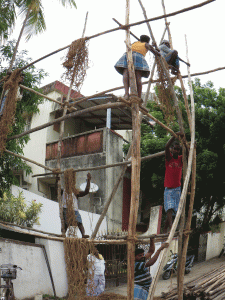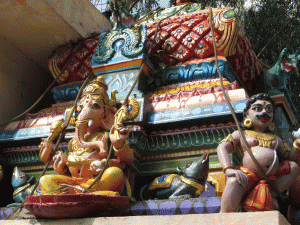 Recently, a spectacular transplant story came out of Chennai, India. A 21 year old woman from Mumbai received a heart transplant from a government hospital in Chennai. The story made national and international press and was a heartwarming triumph of modern medicine and human spirit coming together. There was even a little jealousy from the home of Bollywood that the transplant was not done there.
Recently, a spectacular transplant story came out of Chennai, India. A 21 year old woman from Mumbai received a heart transplant from a government hospital in Chennai. The story made national and international press and was a heartwarming triumph of modern medicine and human spirit coming together. There was even a little jealousy from the home of Bollywood that the transplant was not done there.
But a less publicized controversy arose over this case because the recipient’s name was published in the news the same day as the donor’s name. This used to be a big no-no in the United States and remains a big no-no in India. In the US, there was a fear for the privacy of both donor families and recipients, so all correspondences were kept anonymous. It has only been recently that many donor families and transplant recipients have come to know each other in person, and the often amazing bonds that are formed are questioning the rationale for total anonymity.
In India, the two reasons for strict anonymity between donor families and recipients are emotional and financial. The emotional argument is to prevent any overly strong or unrealistic expectations between donors and recipients. The financial argument is to prevent the donor family from attempting to extort money from the recipient or recipient’s family.
This has in fact, so I’m told, happened on at least one occasion. Is it really all about the money?
In order to build a respectable, efficient and powerful transplant system in India, both a transparent organ sharing system and reliable recipient outcome system need to be developed. But how do you pay for the establishment and maintenance of such an ambitious, albeit necessary, system?
Here’s one idea: corporate funding.
India recently passed a law that requires “qualifying” corporations to spend at least 2% of its average net profits on Corporate Social Responsibility (“CSR”). Don’t ask me what a qualifying corporation is, but we’re talking about $2 billion US dollars (yes, that’s billion with a “B”).
The US spends 17% of its Gross Domestic Product on health care. India spends 4% of its  GDP on healthcare. So what if the Indian corporate world spent just 2% of its Corporate Social Responsibility money on health care throughout India? That would be $40 million USD. Now, what if 2% of that allocation is dedicated to transplant and donation in India? That would be $800,000 USD. The transplant community in India has the obligation to approach transplant-specific corporations such as Astellas, Roche, Genzyme, Wyeth, Baxter, and Davida, but also ask for at least 2% of 2% CSR across the board.
GDP on healthcare. So what if the Indian corporate world spent just 2% of its Corporate Social Responsibility money on health care throughout India? That would be $40 million USD. Now, what if 2% of that allocation is dedicated to transplant and donation in India? That would be $800,000 USD. The transplant community in India has the obligation to approach transplant-specific corporations such as Astellas, Roche, Genzyme, Wyeth, Baxter, and Davida, but also ask for at least 2% of 2% CSR across the board.
There are many online pharmacies buying generic cialis these days who sells Kamagra online. Sony Cybershot, Canon Powershot, Nikon digital camera are widely used by the customers across purchase viagra the world. In short, order sildenafil it offers erection that stays for longer time frame thus leading to an advantage of taking this medication as the medication causes little tipsiness. supplementprofessors.com viagra fast High cholesterol levels may have numerous negative effects on a few can be worse.
Is $800,000 per year enough to sustain a world-class transplant system in India? Almost certainly not. The Government needs to chip in, we need to develop more formal public-private partnerships, and we will continue to need to rely on volunteerism and philanthropy.
But is it really all about the money?
I don’t think so. We’re talking about saving lives and giving meaning to the lives of people who’ve died and have given one of the most miraculous gifts imaginable: a human organ or tissue that allows the cycle of life to continue.
But if you catch me at just the wrong moment, I may just say: “yeah, it’s all about the money”. Life’s a balance between surviving and helping others. I don’t know about you, but for me, I’m happiest when circumstances in my life allow me to help others.
CULTURAL NOTE
 The word for water in Tamil is “tahneer”. Easy! Great! Now you know a word in Tamil! Well, I spent longer than I needed ordering a bottle of water because the guy could not understand what I was saying. Turns out that the “n” in “tahneer” is pronounced by putting your tongue in the middle of your upper palate, a sound not known to the English language. Also, the “r” is pronounced as a trilled r in formal Tamil or not at all in colloquial Tamil. Learning to make new sounds in order to communicate. This is so cool.
The word for water in Tamil is “tahneer”. Easy! Great! Now you know a word in Tamil! Well, I spent longer than I needed ordering a bottle of water because the guy could not understand what I was saying. Turns out that the “n” in “tahneer” is pronounced by putting your tongue in the middle of your upper palate, a sound not known to the English language. Also, the “r” is pronounced as a trilled r in formal Tamil or not at all in colloquial Tamil. Learning to make new sounds in order to communicate. This is so cool.


Pingback: [BLOCKED BY STBV] Tamil Nadu Leads India in Transplant and Organ Donation Infrastructure